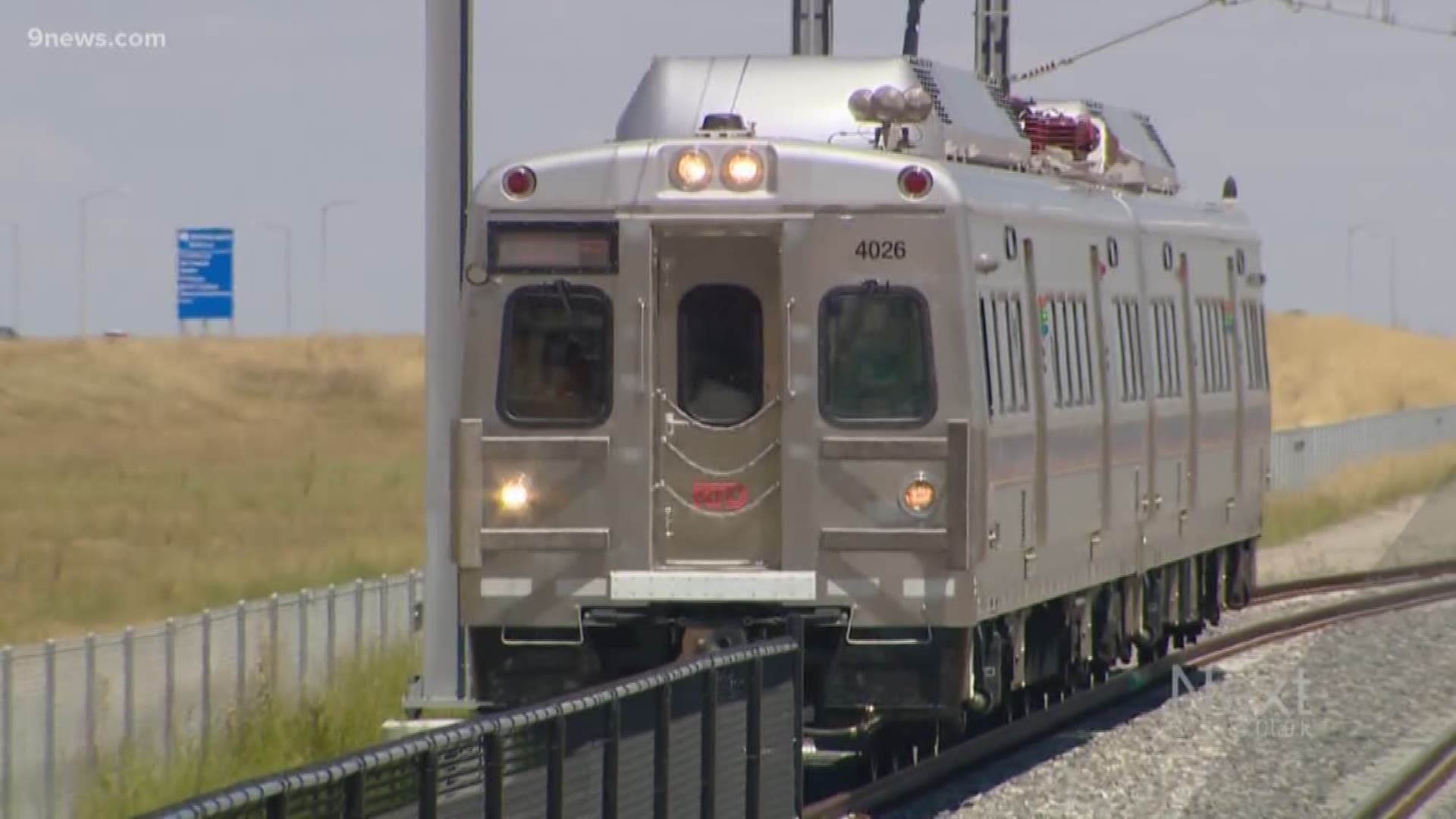DENVER — The Regional Transportation District (RTD) recently won a small victory in its lawsuit with the company it hired to run the A Line. But in winning a judgment, RTD still lost.
Denver Transit Partners (DTP) has sued RTD for $80 million over the cost of A Line delays, including the cost of needing 24/7 flaggers and the cost of fixes required by the Federal Railroad Administration (FRA).
PREVIOUS: Answers to your A Line questions
In the lawsuit, which currently has a four-week trial set for 2020, DTP asked the judge to allow a jury trial.
The contract between RTD and DTP allows one party to waive the right to a jury trial. RTD has waived that right, meaning it doesn't want a jury trial. Nevertheless, DTP argued why it should be allowed. The judge ruled in RTD's favor, but then called out RTD's outside counsel for being "unprofessional."
RTD was seeking reimbursement for the legal fees it cost to argue the jury trial motion.
RTD has hired Dorsey & Whitney LLP, with offices in Denver and Minneapolis.
In RTD's "motion to strike," those attorneys filed eight-page argument. Denver District Court Judge Andrew McCallin took exception with some of the adjectives used by the lawyers.
"…DTP makes an absurd argument…"
"DTP again ignores well-established Colorado law and, not surprisingly, fails to cite any law in support of that proposition."
In his order telling RTD that it won in its effort to avoid a jury trial, Judge McCallin also wrote the following:
"Finally, Defendant (RTD) seeks attorney fees under Rule 11 arguing that Plaintiff's (DTP) opposition to the motion to strike was frivolous. The Court would be inclined to grant this request except for Defendant's own unprofessional handling of this request. Defendant describes Plaintiff's position as 'absurd' and its lack of cited authority as 'not surprising.' The Court will not endorse this type of unprofessional conduct by granting Defendant fees and costs. Therefore, Defendant's request for fee and costs is denied."
That judgment was on May 28. Three weeks later, on June 18, RTD had a board meeting where General Manager Dave Genova requested the board of directors approve an additional $4 million for outside legal counsel. This request would help pay attorneys for the DTP case and any other lawsuit that would require outside counsel. The board was not told that just three weeks earlier, a judge called some of their outside counsel "unprofessional."
"The board was not notified of the order because we, typically, don't notify the board of every order or filing or motion of all the litigation that our counsel team manages, or we would inundate them with information," said Pauletta Tonilas, Assistant General Manager of Communications for RTD. "The four million dollars that the board approved is for overarching litigation for the FasTracks program."
Next with Kyle Clark reached out to all 15 RTD board members on Tuesday. We spoke with eight of the board members, seven either did not remember being told about the judge's order calling the attorneys unprofessional and one refused to answer saying they did not want to discuss anything that might have come up in executive session.
RTD was not able to provide a dollar amount for what the reimbursement could have been had the judge not deemed the attorneys unprofessional.
"We would expect our outside counsel to conduct themselves professionally. In this particular case, they were talked to about this," said Tonilas.
"I wouldn't say it's normal. Generally, attorneys are not told by the court, essentially, that they need to play better," said Christopher Jackson, an attorney who reviewed the motion and order for Next. "'Absurd' is certainly strong language, and I think you'd try to avoid it as a lawyer, unless you really felt that you had a point to make with that word. It's generally much better to just say that you think they are incorrect (or) legally they're not on solid ground, something like that."
SUGGESTED VIDEOS: Next with Kyle Clark

